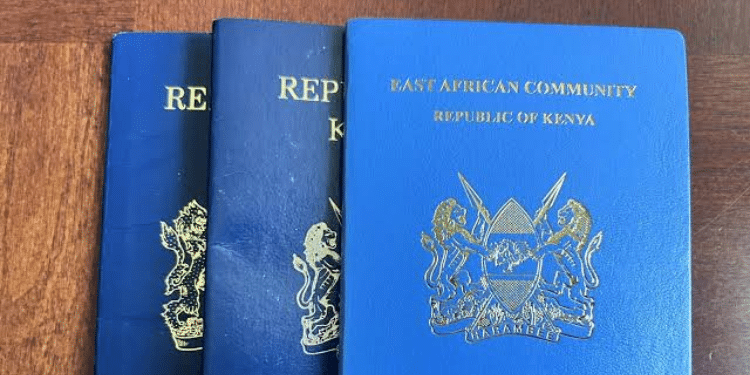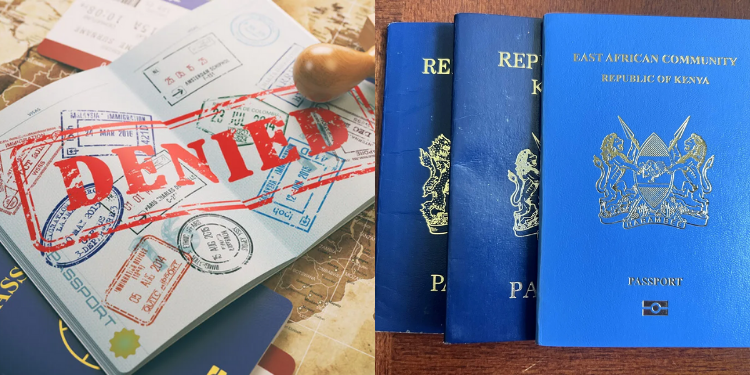Kenyan citizens planning short trips to Europe will soon face a change in both visa requirements and border processing.
The European Union’s new Entry/Exit System (EES) will replace traditional passport stamping with biometric registration for travellers from non-EU countries—including Kenya.
Under the EES, first-time arrivals will have their facial image and fingerprints captured and linked to their passport and travel data. Children under the age of 12 will only have their facial image recorded. Every entry and exit will be digitally recorded, enabling authorities to monitor movements in real-time and identify overstays more efficiently.
The new system will be phased in over six months in 29 European countries, with full coverage expected by 10 April 2026. The change is part of the EU’s efforts to enhance border security, streamline travel procedures, and increase transparency along its external frontiers.
Nationals traveling to Europe will be required to obtain an ETIAS travel authorization before visiting 30 countries.
These include Austria, Belgium, Bulgaria, Croatia, Cyprus, and Czechia, as well as Denmark, Estonia, Finland, France, Germany, and Greece. Others are Hungary, Iceland, Italy, Latvia, Liechtenstein, Lithuania, and Luxembourg.
The requirement also applies to Malta, the Netherlands, Norway, Poland, Portugal, and Romania, along with Slovakia, Slovenia, Spain, Sweden, and Switzerland.
Europe Visa Changes: Kenyans to Face Biometric Checks And New ETIAS Rules
For Kenyan travelers, the alteration does not affect the Schengen visa requirement—those who already need visas will still need to apply for them.
But how they are processed at the border will differ substantially. Citizens visiting Europe for business, tourism, or family reasons—and staying up to 90 days within any 180-day period—will all fall under the new biometric rules.
The European Commission has stressed that data collection will include personal information, passport details, entry and exit locations, and stay durations.
The move is aimed at ensuring compliance with visa conditions and preventing unauthorized stays.
During the rollout, border control may face congestion at major hubs such as Paris, Frankfurt, or Amsterdam. To mitigate delays, some entry points will offer self-service kiosks or mobile registration options, while passport control officers will handle the majority of registrations.
Also Read: Proposed UK Visa Changes That Could Affect Kenyans and Other Foreign Nationals
About Schengen visa
To apply for a Schengen visa, you must submit a completed application form, a valid passport (issued within the last 10 years and with blank pages), and two recent passport-sized photos.
Applicants are also required to provide proof of sufficient financial means, such as bank statements, a travel medical insurance policy with coverage of at least approximately Ksh4.5 million (€30,000), a round-trip flight itinerary, proof of accommodation, and a cover letter explaining the purpose of travel.
Additionally, biometric data (fingerprints) must be submitted. Depending on individual circumstances, extra documents may be needed, such as an employment contract, proof of enrollment, or a letter of invitation.
Also Read: Trump Imposes $100,000 Annual Fee on Selective Visas; What It Means
ETIAS Travel Authorization
In addition to EES, the EU will also implement the European Travel Information and Authorization System (ETIAS). While ETIAS does not apply to Kenyan citizens—who must still apply for Schengen visas—it will affect visa-exempt travellers from other countries.
With ETIAS, travelers must apply online for authorization linked to their passport, valid for three years or until the passport expires. It will cost EUR 20, though some exemptions apply. A valid ETIAS allows multiple short-term stays of up to 90 days in any 180-day period, but it does not guarantee automatic entry. Border officials will still verify conditions upon arrival.
Kenyan citizens are advised to:
- Check visa and passport requirements early.
- Confirm border procedures with their airline or embassy before travelling.
- Ensure their passports are valid for at least three months beyond their intended departure date.
Follow our WhatsApp Channel and X Account for real-time news updates.






















































![Senator Allan Chesang And Chanelle Kittony Wed In A Colourful Ceremony [Photos] Trans Nzoia Senator Allan Chesang With Channelle Kittony/Oscar Sudi]( https://thekenyatimescdn-ese7d3e7ghdnbfa9.z01.azurefd.net/prodimages/uploads/2025/11/Trans-Nzoia-Senator-Allan-Chesang-with-Channelle-KittonyOscar-Sudi-360x180.png)




















